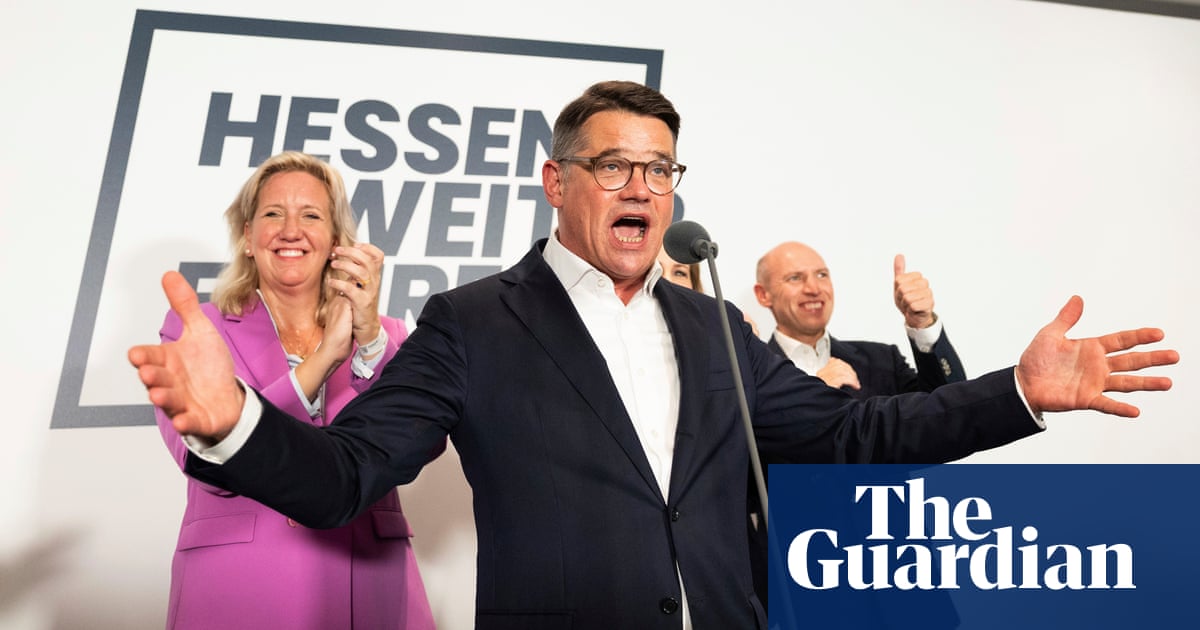Worries about the economy and migration pushed up share for far-right AfD in Hesse and Bavaria, while coalition parties did worse
German chancellor Olaf Scholz’s fractious centre-left coalition has received a sharp rebuke from voters in the key states of Bavaria and Hesse, with economic woes and immigration fears boosting the opposition conservatives and the far right.
At the elections on Sunday the far-right Alternative for Germany (AfD) party burst out of its post-industrial eastern strongholds to score its best ever result in a western state. Polls showed it on course to be the second largest party in Hesse, home to the financial capital Frankfurt.
All three parties in Scholz’s federal coalition – his Social Democrats, the Greens and the pro-business Free Democrats (FDP) – did worse than five years ago in the states, which together account for about a quarter of the German population.



The turn to the right in Germany have a lot to do with the state of the media in Germany.
Far-right groups have sucessfully established isolated media channels on various platforms, among them Telegram and YouTube, but also on Facebook and Twitter, with very little coherence to other media and the actual state of things. Its output is achieved by informally and ideologically recruiting laypersons as influencers who constantly create content which acts as a sort of pyramid scheme of attention, thus self-replicating.
The content also appears on the feeds of already right-wing journalists of very popular and sensationalist newspapers of the Axel-Springer-Verlag (very sketchy and influential publisher) with half a century of experience manipulating the German political landscape.
For additional context it is also necessary to consider that yesterday (Sunday, 2023-10-08) there were elections in two German states, one of which (Bayern) has a history of being more right-wing and religious than the other West-German states.